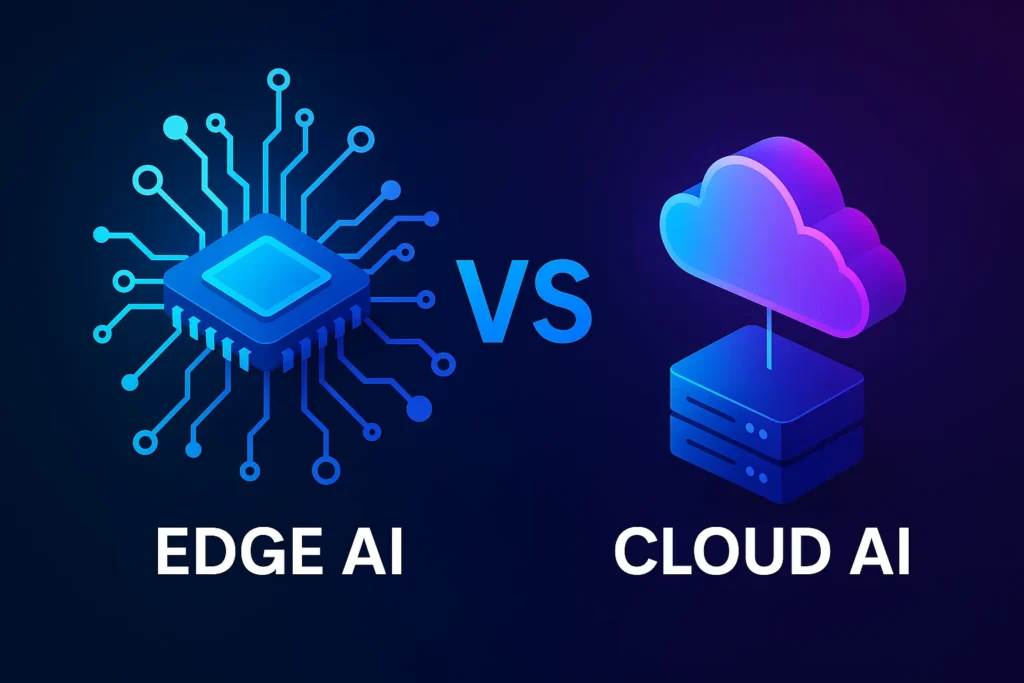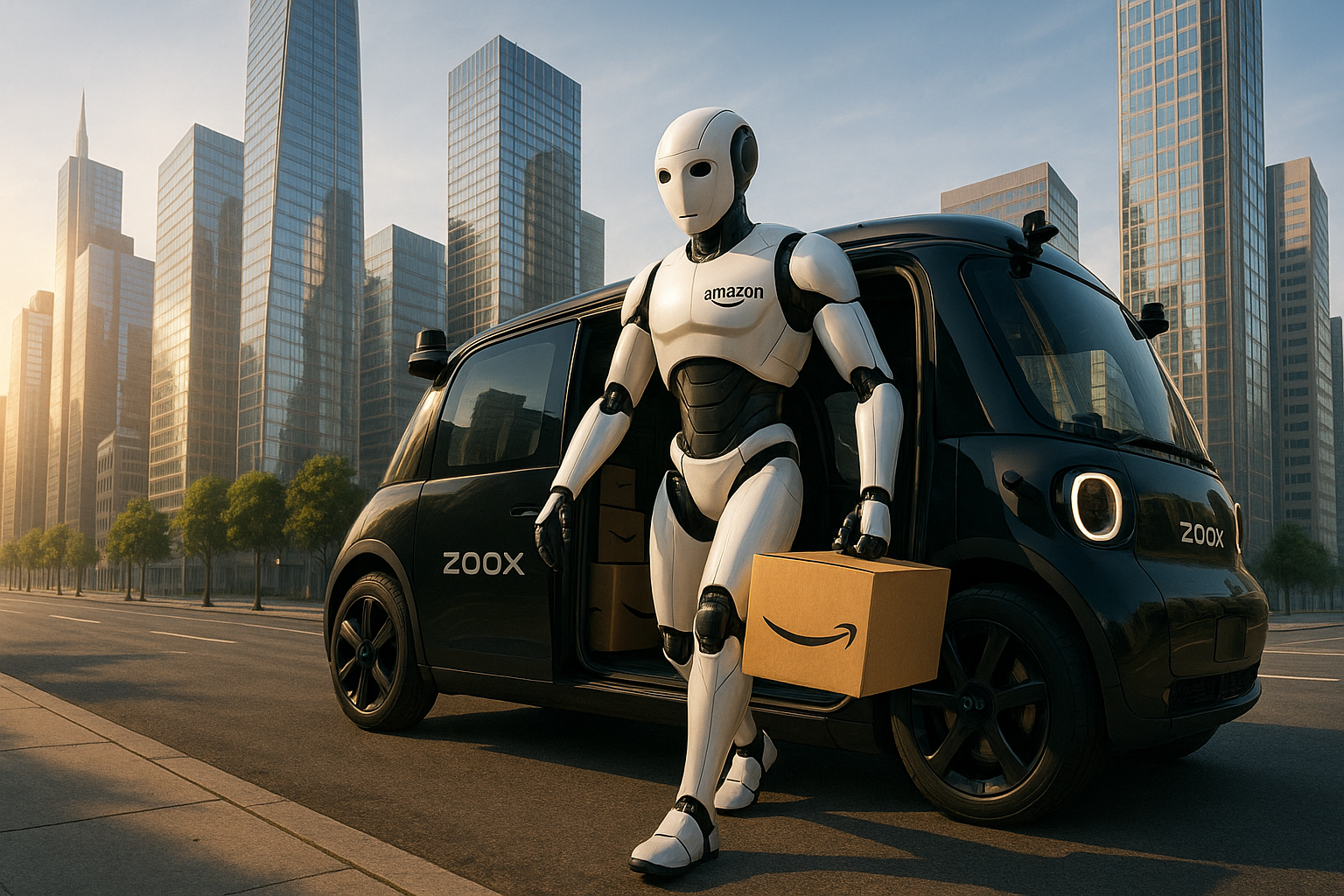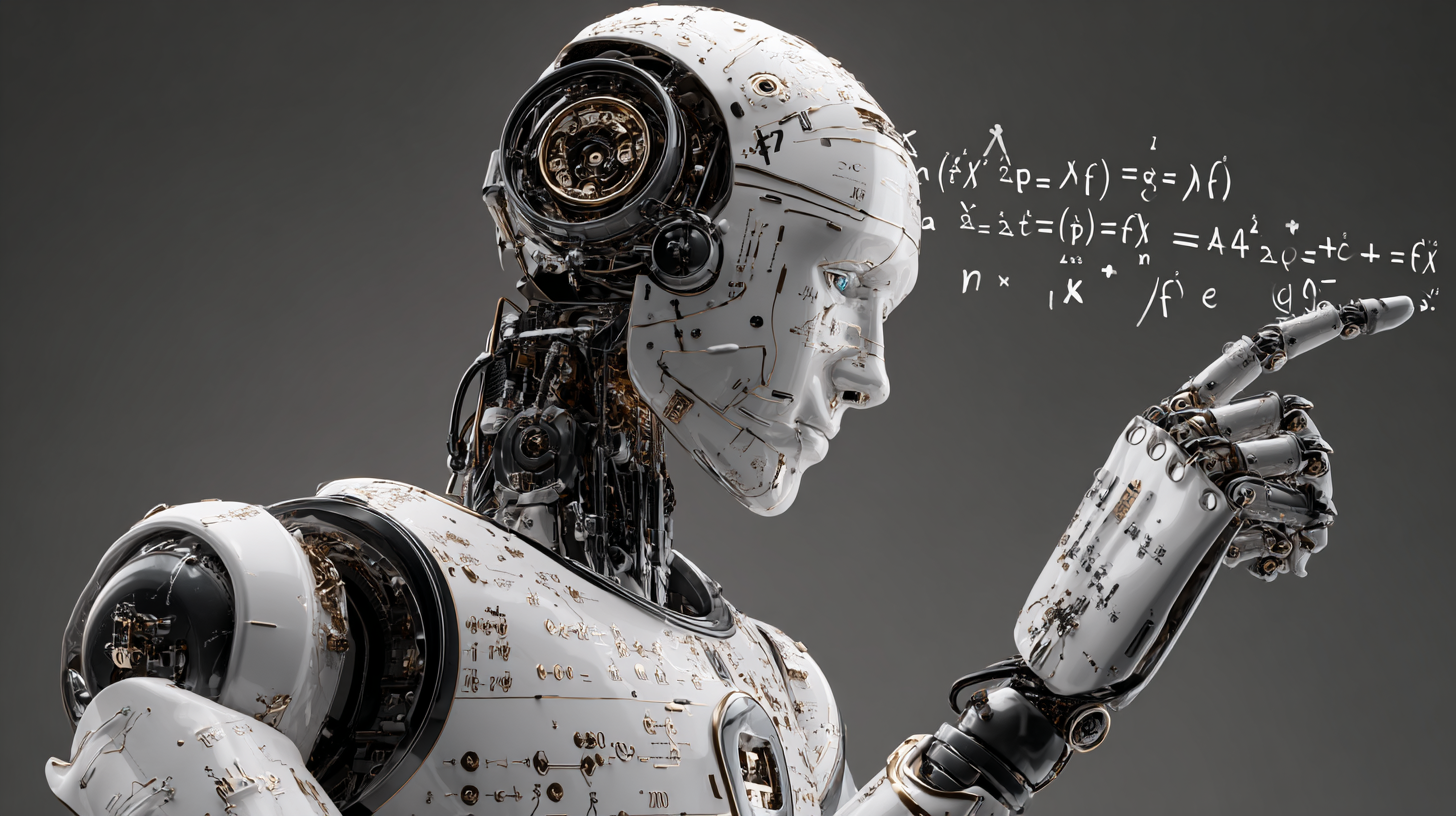Edge AI vs Cloud AI: two technologies sit at the core of modern intelligent systems. Understanding how they work—and when to use each—can help you make better choices, whether you’re building a smart factory or just want your phone to recognize your dog.
When and Why to Use Each
- Edge AI is best for real-time, local processing—think security cameras, autonomous vehicles, or medical devices. It’s fast, private, and works without internet.
- Cloud AI handles heavier computations, like training large models or storing mountains of data. It’s powerful, scalable, and ideal for analytics.
- The real magic happens when they work together: edge handles the speed, cloud handles the scale.

Let’s Start With the Basics
| Feature | Edge AI | Cloud AI |
| Where it runs | On local devices (phones, sensors, machinery) | On remote servers via the internet |
| Speed | Ultra-low latency (real-time) | Depends on connection |
| Connectivity | Can run offline | Requires stable internet |
| Data Privacy | Keeps data local | Sends data to central servers |
| Compute Power | Limited by device | Virtually unlimited |
| Best For | Quick decisions, privacy-sensitive tasks | Heavy data analysis, global model updates |
Edge AI Shines in the Real World
Let’s take industrial vision applications as an example. In factory environments, machines powered by edge AI inspect products for defects in real-time, even under tough conditions like dust or vibration. In these cases, low-latency processing is critical—there’s no time to send video to the cloud, wait for analysis, and then act.
Edge deployments are particularly useful when:
- Internet is unreliable or unavailable
- Response time must be instant (e.g., safety systems)
- Data privacy regulations limit what can be sent to the cloud
Still, edge has its limits—like less computing power and difficulty updating models on the fly. That’s where hybrid systems step in: cloud-backed edge devices can sync with centralized intelligence, allowing local speed and global learning to coexist.
Common Misconceptions (FAQ)
Is Edge AI just a stripped-down version of Cloud AI?
No. Edge AI is designed for a different purpose—fast, local decisions, not massive data crunching. It’s more like a front-line responder than a data scientist.
Can Edge AI work without the cloud?
Yes. That’s one of its strengths. But over time, it benefits from syncing with cloud-based learning models for accuracy improvements.
Is Edge AI more secure?
It can be—because the data never leaves the device. But it still needs strong local security controls.
Why not just use both all the time?
You can—but it adds complexity. Deciding what runs where is a key part of system design.
When to Use Edge, Cloud, or Both
✅ Use Edge AI if:
- You need instant decisions (less than 1 second)
- Internet access is unreliable or unavailable
- You’re handling sensitive data on-site
- Power constraints are tight and constant connectivity is a liability
✅ Use Cloud AI if:
- You need to train or update large models
- Your data needs to be aggregated or compared across regions
- You want to scale fast and broadly
- You’re analyzing complex trends over time
✅ Use Both (Hybrid AI) if:
- You want low-latency local responses + long-term cloud insights
- You want redundancy in case of internet failure
- Your models improve continuously from real-world data
- You’re managing distributed systems (retail chains, smart cities)
Real-World Example: A Smarter Security Camera
Let’s say you install a smart camera at your front door. With Edge AI, it instantly decides whether movement is a raccoon or a person. It doesn’t need Wi-Fi to do this.
Now, with Cloud AI, it uploads rare or uncertain clips to be analyzed, stored, or used to improve the model. Together, this setup balances speed and learning—without flooding your internet connection.
For Personal Projects & Startups
If you’re tinkering with edge projects at home or launching a product, Google Coral offers small, affordable edge devices with on-device ML acceleration. It’s a great way to prototype AI that works in the real world.
Wrapping It Up
Edge AI and Cloud AI aren’t rivals. They’re teammates.
- Edge brings the speed.
- Cloud brings the depth.
- Together, they build systems that are both smart and responsive.
Designing the right balance between them is less about picking sides—and more about knowing your goals. Whether you’re powering an industrial robot or a kitchen appliance, the smarter choice is often… both.
Texts by Sharon Redd




